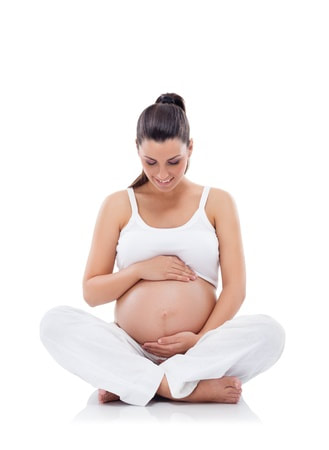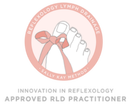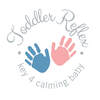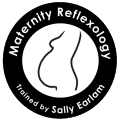Organic maternity reflexology
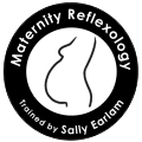
Reflexology is one of the most popular complementary therapies used by women during their maternity because it improves general well-being and vitality. It induces a deep state of relaxation so that her body can adjust to the major changes which are taking place, and it can help to ease or prevent many of the discomforts and ailments which are commonly associated with pregnancy. Trials have found that those receiving regular treatments during their pregnancy tend to deliver closer to term, have shorter labours and require less pain relief.
Former Midwife ReflexologistEmma Clark, at Sole Therapy Reflexology is fully qualified and experienced in specialised maternity reflexology, as well as being a former Midwife. Reflexology treatments are tailored to meet your needs and combined with specific techniques for each stage of pregnancy (including in the first trimester):
For these treatments, an organic balm with mandarin essential oil is used. Mandarin is the only essential oil considered safe for use throughout the whole of pregnancy. Its benefits include being calming, uplifting, as well as reducing anxiety, pain and nausea. Suggested treatment frequency for the different stages of pregnancy
|
The benefits of reflexology and evidence
Reflexology in Pregnancy
Reflexology supports the maternity journey. It has been shown that stress during pregnancy increases complications (Tiran, D. Chummun, H. 2004 - Complementary therapies to reduce physiological stress in pregnancy. Complementary Therapies in Nursing and Midwifery). Reflexology has been shown to reduce the impact of stress on the body and in addition, it can help with the following pregnancy related problems:
Reflexology benefits on labour length and pain
Anecdotal evidence on the benefits is vast. Recent clinical studies have shown that reflexology in pregnancy can:
2. Semra, A and Ilknur, I (2020) The effect of reflexology on labor pain, anxiety, labor duration, and birth satisfaction in primiparous pregnant women: a randomised controlled trial. Health Care Women Int (Sept 2020) 2:1-16
3. Valian M et al (2010) Reviewing the effect of reflexology on the pain and certain features and outcomes of the labour on the primiparous women. Iranian Journal of Nursing and Midwifery research 15 (Dec) p302-310.
4. Iran Red Crescent Medical Journal (2011) 13 (7) 475-479
In addition:
Research study on 100 pregnant women in 2010, found those that had reflexology treatment at the end of their pregnancy compared to those that did not, had a 4 hour shorter first stage of labour and 21 minutes shorter second stage. It also found that fewer women needed strong pain relief in labour and significantly lower number of women needed ARM.
http://www.locallyhealthy.co.uk/story/how-foot-massage-can-help-pregnant-women-deliver
Women's views – felt it had worked in shortening labour, relaxed body, made a lot of difference and totally relieved the anxiety of giving birth. It was fantastic!
http://www.locallyhealthy.co.uk/story/reflexology-proves-ticket-overdue-mum
Dr Motha pioneered the use of reflexology for pregnant mothers in London in 1987. She then set up “The gentle birth preparation program that included reflexology as one of the main components. Dr Motha has written articles and also lectured on Reflexology in Maternity to the Association of reflexologists and obstetric units throughout the UK. Her extensive years of experience and knowledge have made her one of the foremost experts in the use of reflexology in pregnancy in the world. Results of 248 mothers who had enrolled on to the Gentle Birth Method between 1997-2001, which compared the National Average (NA)to people who had received 4+ treatments (4+) and 9+ treatments (9+).
The results included the following:-
http://www.gentlebirthmethod.com/ (Dr Motha)
A study in Iran in 2008 with 120 women looked at the effect of reflexology on pain intensity and duration of labour in women in their first pregnancy. One group received 40mins of reflexology in first active stage 4-5cm dilation, other emotional support at same stage, and the other normal labour care. Women were asked to rate pain before and after intervention, at 6-7 cm dilation and 8-10cm dilation. Pain intensity at all three stages of cervical dilation were significantly lower, and indicated that reflexology could decrease the duration of first, second and third stages of labour.
(Iranian Red Crescent Medical Journal – The effect of reflexology on pain intensity and duration of labour on primiparas, 2008 Dolatian et al)
Reflexology can also help in labour, as anecdotal evidence suggests if can be useful for speeding up contractions if they slow, instilling a greater sense of control and help deliver the placenta.
Postnatal Benefits of Reflexology
A recent study showed reflexology brings improved quality of sleep in postnatal women.
U C-Y et al (2011) Randomised control trail of the effectiveness of using foot reflexology to improve quality of sleep amongst post-partum women Midwifery. 27. p 181-186
It can help with adjusting to the needs of a new baby, whilst recovering from pregnancy and birth, through:
www.babyreflex.co.uk
http://www.gurgle.com/parenting/skills/1855-how-baby-reflex-can-help-your-little-one
Reflexology supports the maternity journey. It has been shown that stress during pregnancy increases complications (Tiran, D. Chummun, H. 2004 - Complementary therapies to reduce physiological stress in pregnancy. Complementary Therapies in Nursing and Midwifery). Reflexology has been shown to reduce the impact of stress on the body and in addition, it can help with the following pregnancy related problems:
- Morning sickness
- Oedema and reducing swelling in feet and ankles – study in Australia in 1999-2001, when women were given only 15 min treatment, indicate that reflexology was more effective than just rest, and that lymphatic reflexology was the most effective in swelling and tightness in feet and calf. Also showed a reduction in levels of discomfort, stress, anxiety, irritability and tiredness. The most noticeable benefit was feeling very relaxed.
- Nausea and headaches
- Pain and discomfort
- Backache
- Itching
- Stress & anxiety
- Improved sleep quality
- Digestive problems – constipation
- Prevention of heartburn
Reflexology benefits on labour length and pain
Anecdotal evidence on the benefits is vast. Recent clinical studies have shown that reflexology in pregnancy can:
- significantly reduce pain and anxiety in labour
- reduce the length of the first stage of labour
- reduce the length of the of the third stage of labour
- increase birth satisfaction during the first stage of labour
2. Semra, A and Ilknur, I (2020) The effect of reflexology on labor pain, anxiety, labor duration, and birth satisfaction in primiparous pregnant women: a randomised controlled trial. Health Care Women Int (Sept 2020) 2:1-16
3. Valian M et al (2010) Reviewing the effect of reflexology on the pain and certain features and outcomes of the labour on the primiparous women. Iranian Journal of Nursing and Midwifery research 15 (Dec) p302-310.
4. Iran Red Crescent Medical Journal (2011) 13 (7) 475-479
In addition:
Research study on 100 pregnant women in 2010, found those that had reflexology treatment at the end of their pregnancy compared to those that did not, had a 4 hour shorter first stage of labour and 21 minutes shorter second stage. It also found that fewer women needed strong pain relief in labour and significantly lower number of women needed ARM.
http://www.locallyhealthy.co.uk/story/how-foot-massage-can-help-pregnant-women-deliver
Women's views – felt it had worked in shortening labour, relaxed body, made a lot of difference and totally relieved the anxiety of giving birth. It was fantastic!
http://www.locallyhealthy.co.uk/story/reflexology-proves-ticket-overdue-mum
Dr Motha pioneered the use of reflexology for pregnant mothers in London in 1987. She then set up “The gentle birth preparation program that included reflexology as one of the main components. Dr Motha has written articles and also lectured on Reflexology in Maternity to the Association of reflexologists and obstetric units throughout the UK. Her extensive years of experience and knowledge have made her one of the foremost experts in the use of reflexology in pregnancy in the world. Results of 248 mothers who had enrolled on to the Gentle Birth Method between 1997-2001, which compared the National Average (NA)to people who had received 4+ treatments (4+) and 9+ treatments (9+).
The results included the following:-
- Vaginal Birth 79% (NA), 85.2% (4+), 90.6% (9+) and caesarean section 21.3%*(NA), 14.7% (4+), 9.4% (9+) *National average 22.4% and in teaching hospitals it is around 30%. Figures include those that had an elective caesarean section.
- Induction 21% (NA), 13.3% (4+), 6.5% (9+)
- Epidural 33% (NA), 30.5% (4+), 17.2% (9+)
- Instrumentation 11% (NA), 6.9% (4+), 6.1% (9+)
http://www.gentlebirthmethod.com/ (Dr Motha)
A study in Iran in 2008 with 120 women looked at the effect of reflexology on pain intensity and duration of labour in women in their first pregnancy. One group received 40mins of reflexology in first active stage 4-5cm dilation, other emotional support at same stage, and the other normal labour care. Women were asked to rate pain before and after intervention, at 6-7 cm dilation and 8-10cm dilation. Pain intensity at all three stages of cervical dilation were significantly lower, and indicated that reflexology could decrease the duration of first, second and third stages of labour.
(Iranian Red Crescent Medical Journal – The effect of reflexology on pain intensity and duration of labour on primiparas, 2008 Dolatian et al)
Reflexology can also help in labour, as anecdotal evidence suggests if can be useful for speeding up contractions if they slow, instilling a greater sense of control and help deliver the placenta.
Postnatal Benefits of Reflexology
A recent study showed reflexology brings improved quality of sleep in postnatal women.
U C-Y et al (2011) Randomised control trail of the effectiveness of using foot reflexology to improve quality of sleep amongst post-partum women Midwifery. 27. p 181-186
It can help with adjusting to the needs of a new baby, whilst recovering from pregnancy and birth, through:
- Coping with interrupted sleep and fatigue
- Increase energy levels
- Maintaining or increasing milk supply – case study review in 2000 ‘the effect of reflexology on homeostasis to establish and maintain lactation’.
- Support as your menstrual cycle returns to normal
- Re-balance the body
- Stabilize body weight
- Prevent post-natal depression
- General relaxation and “Me time”
- Baby reflex- once 4 weeks old (or equivalent to full term 4 week old), can be taught to parents and has been shown to bring relaxation, improved sleep and parent/child bonding.
www.babyreflex.co.uk
http://www.gurgle.com/parenting/skills/1855-how-baby-reflex-can-help-your-little-one

